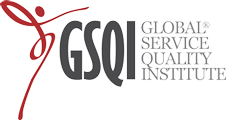Areas of Knowledge & Competence Pre-requisites for Customer Service Managers as prescribed by the GSQI Professional Certifications Board (GPCB).
| Code | Assessment Component |
| 1 | Understanding of the Customer Service Work-Place & Environment |
|
|
| 2 | Understanding of the Manager Function in Customer Service departments |
|
|
| 3 | Knowledge of Role-profile of a Typical Customer Service Manager |
|
|
| 4 | Knowledge of Principles & Techniques of Manager in Customer Service |
|
|
| 5 | Knowledge of Techniques & Principles of Managing Service Delivery & Quality |
|
|
| 6 | Contribution to Organization Growth |
|
|
IMPORTANT:
- The Knowledge & Competence Areas mentioned in this document may change in the event of updation or revision of the HCMS21 standards. BCI duly notifies all its associates, partners, clients, past certificants, certification applicants/ registrants and other stakeholders of all such changes and alterations.
- The list of topics and areas mentioned in this document purports to exactly present the scope of a BCI Certification Examination and is used by all authorized BCI Certification Training Providers as a guide for designing their respective curricula for MasterClass and training. BCI is NOT RESPONSIBLE in any way for training quality or training content and cannot be held responsible for an applicant/ registrant/ certification examinee failing the BCI Certification Examination because of having undergone training/ MasterClass with a certain training provider.
- All stakeholders are requested to appreciate that it is impossible to create a Training Program or Training manual that will exactly and completely cover the entire assessment scope to the depths required by a certification body. Hence, under no circumstances can a certification registrant or a Certification Training Provider (CTP) expect the questions in any BCI Certification Examination to be exactly based on the Training Content/ Training Manual/ Instruction Material etc., provided by the Training provider. BCI’s judgment and decisions on assessment questions have been arrived at after years of extensive international research and analysis and shall remain final, and hence, also, BCI’s decisions on a particular Assessment/ Examination event and on a particular certification aspirant/ applicant shall remain final.

